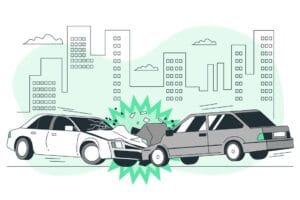Public policy involves the sum of legislation, rules, and measures that are undertaken by the government to serve specific societal and economic goals and objectives. It substantiates the government’s desire and plan to deal with specific concerns or challenges in particular sectors or areas. Public policy refers to a set of institutions and practices that dictate both the actions of governments and their relationship with society and the economy, as well as politics.
This sets policy issues within the economic field, social issues, education and health services, and environmental fields. It is driven by the president’s policies, community standards and beliefs, and the economic status of a nation and is a key factor in dictating the destiny of a state. It is essential to understand that public policy is used as a tool for solving social issues and building societies. In political science, it is crucial to define and describe what public policy means, what changes it has undergone, and why it matters.

Public policy, as a field of study, is beneficial because it prepares people to deal with some of the challenges facing society and has a significant impact. It offers the prospect of managing policy development, setting performance and outcome measurements, and achieving changes in policy decisions. Further, public policy scholars develop skills of critical thinking, problem-solving, and analysis that are fundamental in different fields. It also provides exposure to professionals in the field with whom one may interact for business purposes.
These benefits are magnified by the pursuit of a master’s degree in public policy, as it ensures that persons interested in acquiring the skills necessary to become desirable professionals are provided the opportunity to do so. Due to the enhanced expertise acquired through the program, the graduates are capable of assuming leadership responsibilities in government, non-profit, and private organizations. They are also equipped to make positive impacts on society.
As mentioned earlier, public policy can be classified into a number of varieties depending on factors such as focus, breadth, and time horizon. Distributive policies involve the use of resources within societal structures for the purpose of providing equal distribution of tangible products. Redistribution policies aim to cause the lowest possible income disparity by transferring wealth. Public policies regulate or attempt to influence the conduct of individuals or organizations in order to further the public good or interest. Constitutional policies refer to the policies that define the character of society in terms of rights and roles. There are international relationships and policies to advance a particular country’s goals, prevent conflicts, and strengthen alliances.
Why are public policies more important now than ever?
In recent years, countries have witnessed a growing interconnectivity in areas of trade and investments, security, health, and others. This can be further explained by the fact that as individuals and assets traverse the physical borders, so too have public concerns evolved into being international. The recent COVID-19 pandemic provided perhaps the best example of how countries need each other to guarantee the safety of their people, pointing to the multifaceted nature of public policy issues.
The most important and significant change is that, due to rapid urbanization, an increase in education levels, and the importance of technology and telecommunications, citizens and other important non-government stakeholders in India have become actively involved in the policy making process of the country. Complicated social development processes and high public expectations create a potential for disaster if poorly designed and poorly implemented policies are implemented.
In a democracy like India, citizens have a crucial means to indirectly participate in policymaking: voting. In other words, when you vote for a government, you are also implicitly voting for or against the proposed public policies that are endorsed or supported by the government. In light of the dynamics whereby parties and politicians change every few years, the positions and attitudes of the majority and those in office also change. However, politicians are dismissed from power, whereas public policies are not easily altered in the short-run. Hence, any vote should be cast with intention for those who dictate the policies you consider significant for your nation.
Every stakeholder has a different perception about the social issues and has his/her own incentives or risks involved in the policy-making process. The ability to balance and mediate between stakeholder demands and policy goals shapes the successful outcomes of a given public policy. It is the test of a good public policy to satisfy the needs of the citizens of so and so without compromising the larger national interest.
Scope of Studying Public Policy in India
Public policy in India also includes involvement not only at the governmental level (sarkari), and market level (bazaar) but also at the societal level (samaj). Significant growth and development over the last two decades have resulted in the mushrooming of numerous institutions providing education in public policy and related fields, along with various think tanks, implementation and monitoring agencies, and evaluators. At present, there is a huge demand for professionals with domain knowledge encompassing India, public policy operations, bureaucracy, and technical disciplines specific to the jobs available.
The market for public policy careers is vast, and new career opportunities are created as needs are further fragmented and become more specific. Public policy careers can be in the public and nonpublic civil service employment sectors. undefined
Government (Sarkar): the civil services, judicial services, armed forces, law enforcement, central and state regulatory authorities, including the banking and insurance sectors, teachers, doctors, nurses, and social workers.
Market (Bazaar): government policy researchers and analysts, market research analysts and consultants, policy advisors, impact assessment workers, monitoring and evaluation specialists, journalists, public relations staff, and lawyers.
Society (Samaj): policymakers, development cum programme officers, equality activists, donors and grant givers, legislators and legislative assistants, policy researchers, political strategists and pollsters, campaign managers, and publicists.
Public policy offers employment for everybody, no matter what field of study they specialized in after their academic years. Contrary to what many people believe, one does not have to be a student of social sciences majoring in economics, sociology, political science, or public administration to find his/her place in this field. Engineering, architecture, urban and rural planning, and management skills are still at premium for solving hard problems and issues, from the development of urban infrastructure to the design of carbon neutrality.
Conclusion
Public policy has never been as important as it is now when countries are facing transnational challenges, including the virus infection disease COVID-19, climate change, and inequalities. It has led to the creation of employment opportunities for aspiring individuals. Pursuing a master’s degree in public policy can prepare an individual to analyze, create, and implement different and effective policies, which both agencies and private companies need. Graduates can advance their careers and serve in governmental positions as well as consulting and advocating for society. From cultivating skills in generating and assessing ideas, inductive reasoning, and cycling through solutions to acquiring advanced knowledge in public policy, this degree empowers graduates to make a difference and rise to the challenges of today’s world.











